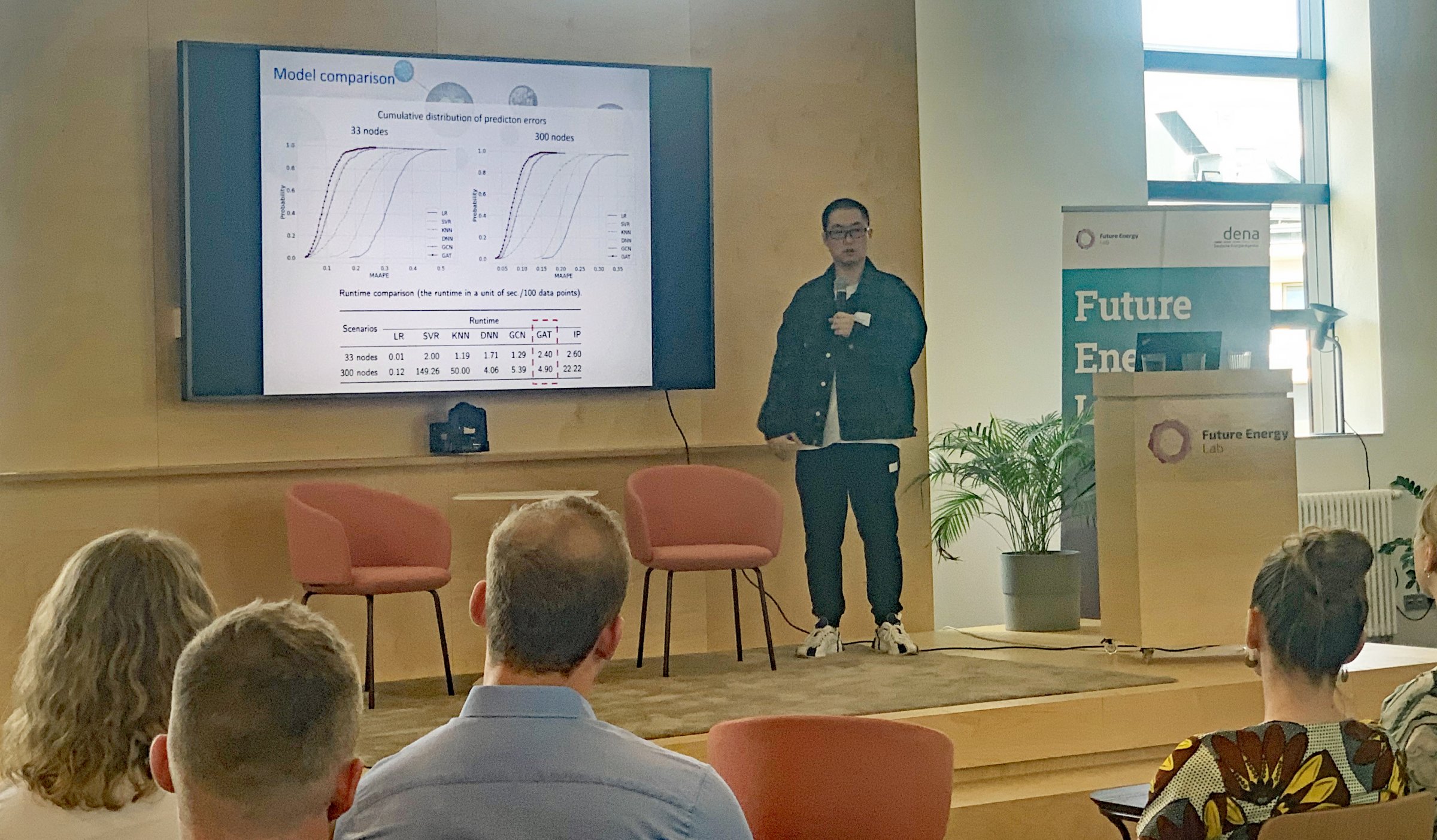June 7, 2024
FIAS at “Strommarkttreffen”
Electricity market meeting in Berlin
FIAS PhD student Chen Li spoke as an invited speaker at the ‘Strommarkttreffen’ (Electricity Market Meeting) in Berlin. He presented his findings on optimising power dispatch using machine learning. Researchers at FIAS have developed a state-of-the-art AI system that balances out weather-dependent fluctuations in the electricity grid and thus ensures the efficient and reliable distribution of electricity from sources such as solar and wind (https://fias.news/en/news-publicity/ai-solution-avoids-weather-dependent-fluctuations-in-the-power-system/).
Under the motto ‘Artificial Intelligence & Machine Learning in the Electricity Market’, the Future Energy Lab organised presentations on how electricity markets can be made more efficient, flexible, and sustainable. As part of the think tank of the German Energy Agency (dena), Future Energy Lab brings together several thousand members from the digital and energy industries to test digital energy and climate technologies.
At the ‘Electricity Market Meeting’ in Berlin at the end of May, Chen Li from FIAS spoke to an audience of 40 people from science, politics, and business. Besides him there were talks of:
- Martin Palovic (Constructor University, Bremen) on machine learning in the procurement of grid services
- Florian Marquardt (Brandenburg University of Applied Sciences) on the use of large language models in customer service in the German energy industry
- Nick Harder (INATECH, Université de Fribourg) on reinforcement learning in modelling the electricity market.
In his presentation, Li introduced the problem of optimising the power dispatch in the modern energy system. He discussed possible applications of AI methods to solve the problem. To this end, he presented his approach to artificial neural networks, including results that illustrate the performance. He also mentioned other application scenarios, such as the assistance and replacement of conventional approaches as well as foundations for economic optimisation and market analysis.
In the lively discussion that followed, Li confirmed in response to questions that the AI approach can also provide a near-optimal optimal solution for conventional solvers. It also became clear during the discussion that neural networks that have already been trained can only deal with a power supply system that has a fixed structure. If changes are made, a new data set must be prepared from the new system and the neural network must be trained again.
Li found the conference very stimulating - even if the German language was a barrier to discussion for him. The FIAS research results were received with great interest. “It’s very exciting to see people not only from university but also from industry and policy are working on AI applications for the energy system and market, which shows the great potential of AI”. He is convinced, that people will discover more application scenarios for AI in the energy sector, which will eventually lead to a more efficient, economical and greener future.
